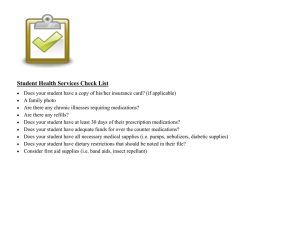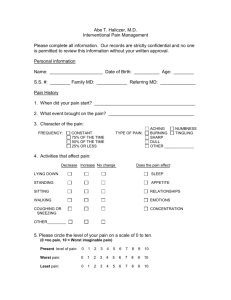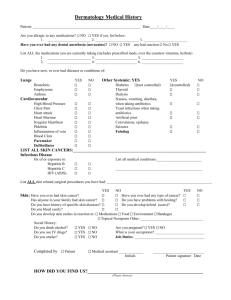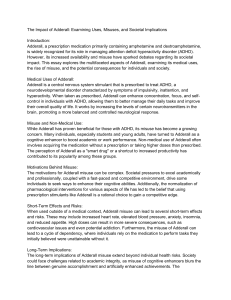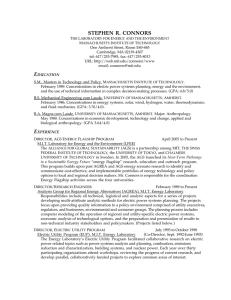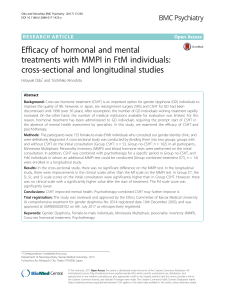ATTENTION DEFICIT DISORDER (ADD) LHC 1300.3058 AP Patient Care
advertisement
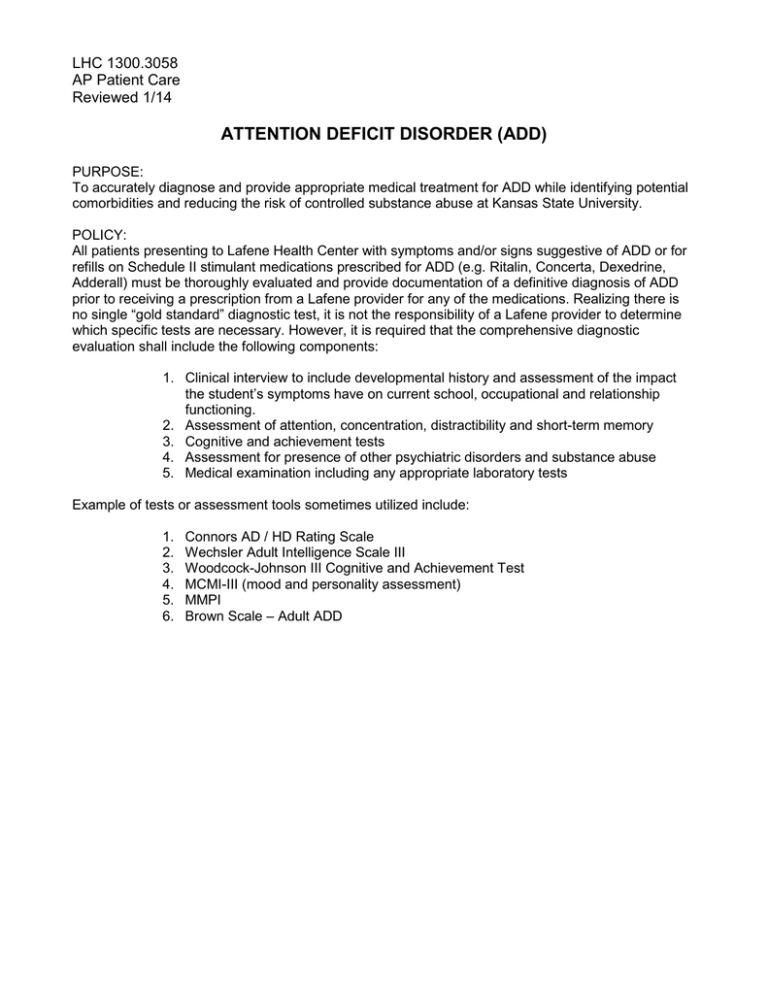
LHC 1300.3058 AP Patient Care Reviewed 1/14 ATTENTION DEFICIT DISORDER (ADD) PURPOSE: To accurately diagnose and provide appropriate medical treatment for ADD while identifying potential comorbidities and reducing the risk of controlled substance abuse at Kansas State University. POLICY: All patients presenting to Lafene Health Center with symptoms and/or signs suggestive of ADD or for refills on Schedule II stimulant medications prescribed for ADD (e.g. Ritalin, Concerta, Dexedrine, Adderall) must be thoroughly evaluated and provide documentation of a definitive diagnosis of ADD prior to receiving a prescription from a Lafene provider for any of the medications. Realizing there is no single “gold standard” diagnostic test, it is not the responsibility of a Lafene provider to determine which specific tests are necessary. However, it is required that the comprehensive diagnostic evaluation shall include the following components: 1. Clinical interview to include developmental history and assessment of the impact the student’s symptoms have on current school, occupational and relationship functioning. 2. Assessment of attention, concentration, distractibility and short-term memory 3. Cognitive and achievement tests 4. Assessment for presence of other psychiatric disorders and substance abuse 5. Medical examination including any appropriate laboratory tests Example of tests or assessment tools sometimes utilized include: 1. 2. 3. 4. 5. 6. Connors AD / HD Rating Scale Wechsler Adult Intelligence Scale III Woodcock-Johnson III Cognitive and Achievement Test MCMI-III (mood and personality assessment) MMPI Brown Scale – Adult ADD
